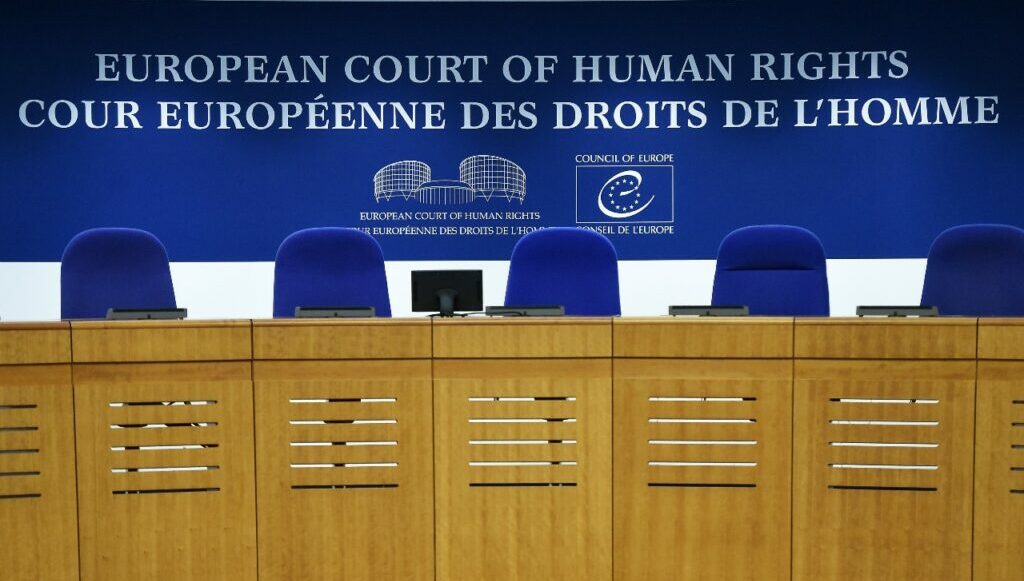The European Court of Human Rights (ECtHR) on Tuesday ruled that the pretrial detention of 50 judges and prosecutors after a failed 2016 coup against President Recep Tayyip Erdoğan lacked grounds that can constitute reasonable suspicion.
Responding to a complaint brought by 50 members of the Turkish judiciary who were detained after the failed putsch, the court said the grounds for their detention were “not of a nature” to constitute “reasonable suspicion” and ordered Ankara to pay 5,000 euros in damages to each applicant.
They had been arrested as part of a mass crackdown on the Gülen movement, inspired by Turkish cleric Fethullah Gülen, whom the president blames for the coup bid. Gülen and the movement deny any involvement.
The ruling is the latest by the Strasbourg-based ECtHR against Turkey, a member since 1950 of the Council of Europe, of which the court is a part. It said the detentions had violated the European Convention on Human Rights, which the court enforces, “on account of the lack of reasonable suspicion, at the time of the applicants’ initial pre-trial detention, that they had committed an offence.”
Following the abortive putsch, the Turkish government declared a state of emergency and carried out a massive purge of state institutions under the pretext of an anti-coup fight. More than 130,000 public servants, including 4,156 judges and prosecutors, as well as 29,444 members of the armed forces, were summarily removed from their jobs for alleged membership in or relationships with “terrorist organizations” by emergency decree-laws subject to neither judicial nor parliamentary scrutiny.
AİHM’DEN TUTUKLULUKLA İLGİLİ ÇOK ÖNEMLİ BİR KARAR!
1. AİHM, 50 yargı mensubunun daha haksız şekilde tutuklandığına hükmederek ihlal kararı vermiştir.Bu dosyada AİHM, 427 kişiyle ilgili Turan ve diğerleri kararından farklı olarak “suçüstü hali” gibi şekli kanuna aykırılık yerine,
— Dr. Gökhan Güneş (@GkhanGnes8) June 28, 2022
Dr. Gökhan Güneş, a human rights activist and an expert on international criminal law, tweeted that the ECtHR decision was “significant,” saying the court’s Tuesday decision was about the merits of the judges’ pretrial detention, unlike the prior decision, which was about the lawfulness of the procedure.
“The Court notes from the information in the case files that the applicants’ initial pre-trial detention was based solely on the decisions taken by the HSYK [High Council of Judges and Prosecutors] or the 1st Presidency Board of the Court of Cassation for their suspension from office or the revocation of their authorities, and/or on information indicating their use of the ByLock messaging system. The Court has already found that neither of these grounds relied on by the domestic courts in ordering the applicants’ pre-trial detention was of a nature to constitute ‘reasonable suspicion’ within the meaning of Article 5 § 1 (c) in respect of the offence attributed to them,” the ECtHR said, referring to its previous rulings on the ByLock messaging app.
ByLock, once widely available online, has been considered a secret tool of communication among supporters of the faith-based Gülen movement since the coup attempt on July 15, 2016 despite the lack of any evidence that ByLock messages were related to the abortive putsch.
The ECtHR ruled in July 2021 in the case of former police officer Tekin Akgün that use of the ByLock application is not an offense in itself and does not constitute sufficient evidence for arrest. The Strasbourg court’s ruling came as a source of hope for thousands of people who were arrested or sentenced on terrorism charges based mainly on a National Intelligence Organization (MİT) report that detailed users of ByLock. However, detentions and arrests based on ByLock use continued unabated in Turkey.

